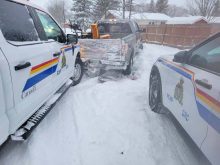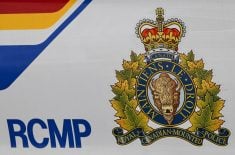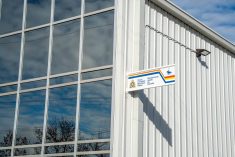Beef producers across the province have become friendlier toward the idea of a livestock inspection service, according to the Manitoba Beef Producers.
The organization canvassed its membership on the issue during this year’s round of fall district meetings.
Those meetings were generally better attended than in past years, perhaps owing to greater optimism from good cattle prices and healthy markets, said general manager Carson Callum. The same factors were also the reasons many producers have cautiously warmed to the idea of an inspection service.
Read Also
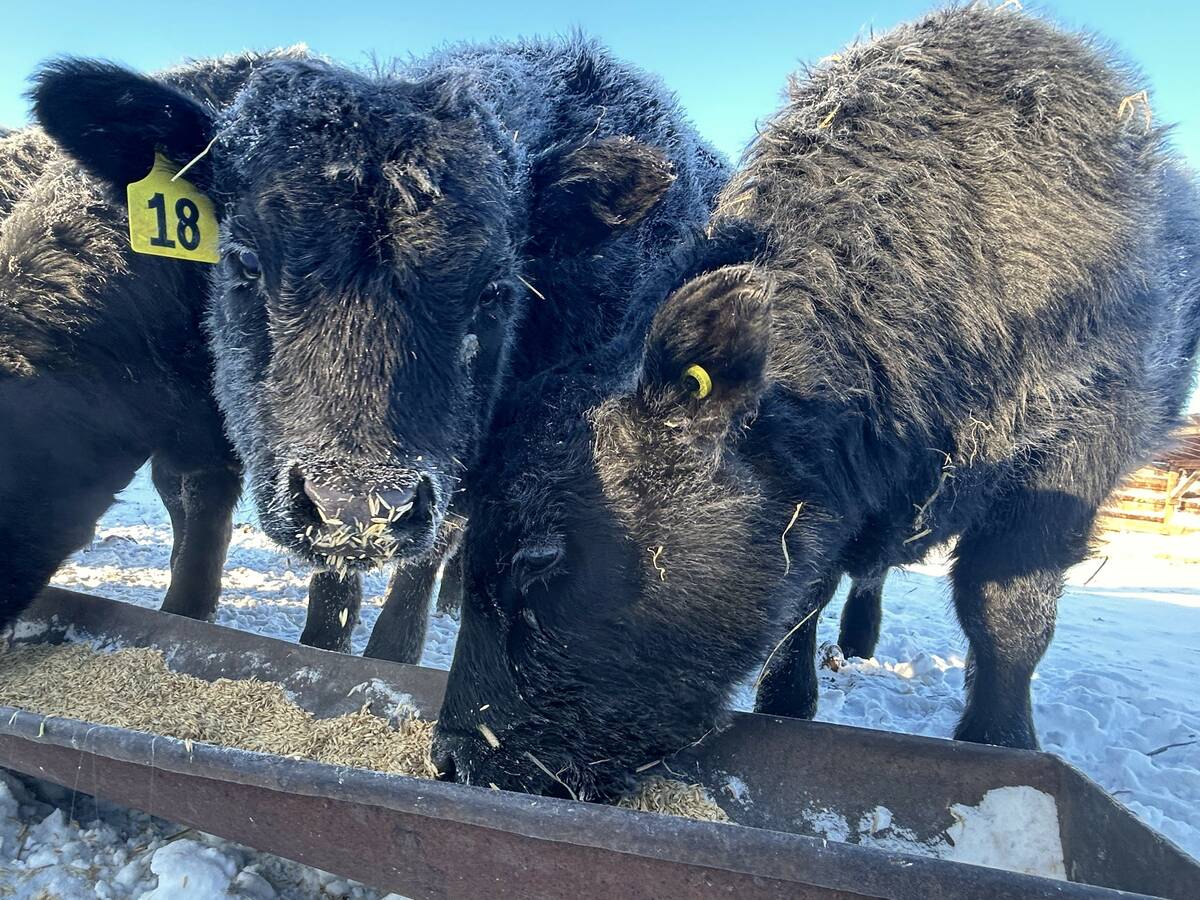
CCIA prepares to make traceability transition
The Canadian Cattle Identification Agency may not be proposing regulatory changes for traceability, but it’s the one delivering the program.
“Overall, I would say, (the response) is very positive in support,” Callum said.
Why it matters: Required verification of cattle ownership at auction could enhance fraud protection, traceability and lending security for Manitoba’s beef industry, but its implementation hinges on producer consensus and legislative changes.
Mandatory livestock inspection has generated long-standing and heated debate in the province’s beef sector. Detractors question its effectiveness and are wary of costs.
The issue has become entangled with a more popular suggestion, the idea of specific police resources to handle livestock issues. That push has picked up steam in recent years, given the increased value of cattle. Industry has noted cases in recent years where dedicated police officers familiar with livestock would have been an asset.
Other provinces in Western Canada have those police assets, and Manitoba is the only western province lacking an inspection service.
During the MBP annual meeting this February, Saskatchewan livestock RCMP officer Cpl. Owen Third noted that Saskatchewan’s inspection service is often key in resolving cases that come across his desk.
“They’re able to provide me with copies of manifests from when a certain producer might have delivered cattle,” he said. “When producers sign that manifest, they’re also declaring that they own this cattle or the cattle they dropped off.”
Saskatchewan producers pay a checkoff to get that service and it is subject to increases.
Third also said that although branding is rarely done in Manitoba, it is more permanent form of identification and has improved the solve rate of his cases.
Back in the hot seat
There is pressure from banks, insurers and others in the industry to implement livestock inspection services to provide greater security for lending.
“But it’s going to come at a cost,” Callum said at the Oct. 28 meeting in Carman. “Stock producers in Saskatchewan, Alberta and B.C. all pay for this service. In Saskatchewan, it’s currently set at $2.75 per head.”
Livestock Services of Saskatchewan (LSS) has a presence in Manitoba, since Manitoba cattle that move into Saskatchewan must be cleared by LSS. Callum said one option is to contract the LSS to expand services into Manitoba. A separate Manitoba service would require legislative change.
“The decision is not ours to make; it is the government’s,” Callum said. “So, we would need to have a strong path forward from industry to give us confidence that we can advocate the government to make the changes that are needed. If we don’t have industry consensus, it will stop the gears from turning, and we will not see it implemented.”
The funding structure of any potential service is up for debate, but it would likely be a per-head checkoff, Callum said.
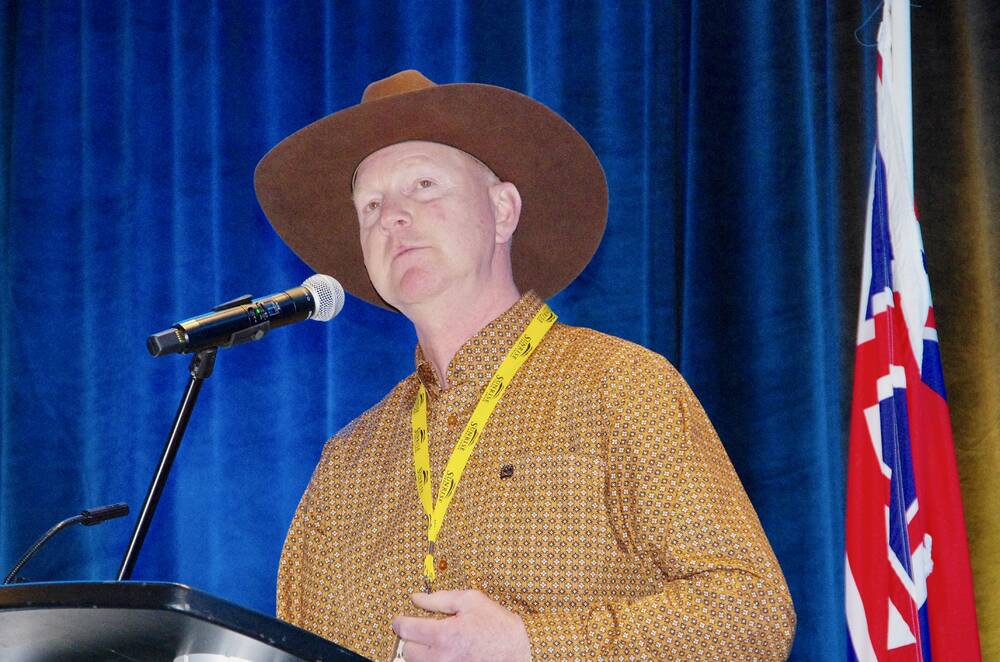
Pros and cons
Proponents say an inspection service could add value through built-in traceability. On-site inspectors could help with humane movement and traceability reporting now required by the Canadian Food Inspection Agency. In Saskatchewan, the LSS developed an app to specifically address those needs.
Mandatory inspection, as it’s set up in other provinces, provides inspectors with greater powers, Callum noted.
“Their inspectors are going to be looking for visual identity of ownership, like a brand, maybe visual cues, maybe the RFID tag. It all depends on kind of the auction barn.
“But those inspectors have strong powers. If they feel they’re not your cattle that you’re bringing to the auction mart, they can retain them. They can stop the cheque from going through. Whereas the only powers that our inspectors have in Manitoba are using it for data gathering for a court case after the fact.”
Lack of branding is another hurdle, and one set to become more contentious, given public pressure on animal treatment and pain management in livestock settings. However, Callum said cattle can be effectively inspected using other visual cues.
“They’ll often look at paperwork as well to understand. They have used radio frequency identification tags. They’re not perfect for proof of ownership, as you can steal or cut out the tag, but you can also adjust a brand. It’s not as easy, but it’s doable.”
A livestock police officer and an eventual livestock inspection service could go hand in hand.
“We absolutely … need to see an RCMP officer in place. And that’s something we’ve already read into the province about for funding like we see in our western neighbours,” Callum said.
More information is needed before a decision can be made, he said after the recent round of fall meetings.
“We got a lot of great feedback for our board to consider, and we look forward to continuing this effort and making sure, if a program were to be developed, it does provide that value and that service that is needed, both from a fraud and theft protection (perspective), but (also) others.”
Discussions are expected to continue at the group’s annual general meeting in Winnipeg in February. — with files from Alexis Stockford and Don Norman






